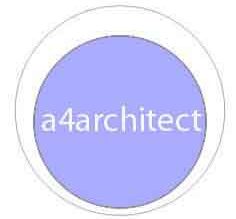Joint Venture in Kenya. 100% financing for Real Estate Projects. Highest Return on Investment .
Joint Venture for construction of buildings in Kenya is now a common occurrence . Many buildings are being financed this way. Notable buildings financed this way are the Suraya Housing project along Kiambu road, Everest park at Athi River and Project Snow Drop in Upper Hill.
Suraya Kiambu road.

Everest Park, Athi river.

Snow Drop, Upper Hill.
Why Joint Venture.
As the cliché saying goes, in Real Estate investment, there are 3 important points
1.Location.
2.Location
3.Location.
This means that not all potential Real Estate investors can get prime land. A good example of prime land is land fronting tarmac, land in Nairobi CBD ,Upper Hill, Westlands, Runda, Karen etc.
Land owners in such prime areas have 2 options to fund their Real Estate projects.
1.Sell part of the land to enable then raise 20 to 30% of the total project cost needed by the banks for them to release a loan of the remaining 70 to 80% of construction cost.
2. Look for a Joint Venture partner to raise the 20 to 30% needed by the banks as condition for releasing the 70 to 80% of construction cost.
In most cases, the Joint Venture scenario presents a win win situation since the development can be constructed with economies of scale and services such as parking can be easily availed in larger plot sized developments.
Joint Venture Return on Investment.
As a real estate investor, Joint Venture returns on average between 100% to 300% of the money put into the investment within 2 to 3 years. This is a very impressive return compared to the real estate average of 20 to 30%.
Example. 0.5 acre in Nairobi CBD outskirts Joint Venture.
The land owners contribution is kes 120m which is the value of the land.
The cost of construction is 400m.
For the land owner to obtain bank financing, he will require to have 20% of 400m in cash=80m.
This is a huge amount of cash so a JV win win situation is necessary.
The JV partner is required to inject KES 80m.
With this, he gets to be part owner of the land.
A Special Purpose Vehicle company is registered for this purpose whereby the land owner transfers the land into the company jointly owned by him and the JV partner.
Once the bank releases the loan to construct, houses are completed and sold off. After all expenses are deducted, a profit of kes 200m is realized.
The land owner gets the value of his land, kes 120m plus a share of the 200m, usually on a 50 50 split. He walks with kes 220m.
The JV partner after injecting kes 80m walks with the kes 80m plus kes 100m. This represents a 125% return on investment within 2 to 3 years which is quite impressive.
Conclusion.
For the land owner, a JV partnership represents the easiest way to unlock funding for development.
For the JV partner, the JV presents a situation for him to make over 100% return without having the need to buy land in a good location.
Francis Gichuhi Kamau, Architect.
0721410684


Leave a Reply